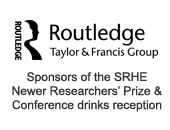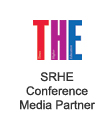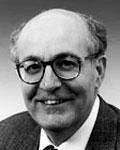| |
Conference Speakers
| |
 |
 |
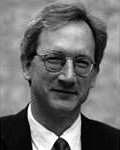 |
|
Professor Howard Hotson
Fellow and Tutor in Modern History, Professor of Early Modern Intellectual History, St Anne’s College, University of Oxford
 |
| |
|
|
Big Business at the Heart of the System:
Understanding the Global University Crisis
Since the publication of the Browne Review1 in October 2010, the UK Coalition Government's university reform plans have aroused wave after wave of opposition at home and a good deal of comment and consternation around the world. UK students took to the streets in a manner not seen for a generation; academics organised unprecedented forms of protest; and criticisms of the assumptions underlying the proposed reforms have proliferated, leaving government ministers unable to justify their policies coherently.
Yet while government plans have retreated into the disorderly fudges of the White Paper2 and the BIS3 Higher Education Bill has now been postponed indefinitely, the privatisation of England's university system moves relentlessly forward.
Meanwhile, similar scenarios are playing themselves out on very similar timetables in many other university systems around the world, including in countries with very different social values and political traditions than the UK. This paradoxical combination of political retreat and unstoppable advance across such a broad front poses the question at the heart of this address. If these reforms are propelled neither by a clear democratic mandate nor by a coherent intellectual vision, what is energizing their seemingly unstoppable advance? This address will attempt to reframe the question within a global context, in which higher education systems around the world are being radically restructured in order to serve the needs, not of students or of national communities, but of a globalised economy. In this way, discussion of the radical nature of university reform in England can provide a lens through which developments elsewhere may be seen in a clearer light.
1 The Browne Review or Independent Review of Higher Education Funding and Student Finance was a review commissioned to consider the future direction of higher education funding in England. It was launched on 9 November 2009 and published its findings on 12 October 2010 under the title “Securing a sustainable future for higher education”. It was chaired by Lord Browne of Madingley, the former Chief Executive of BP. It recommended wide-ranging changes to the system of university funding, including removing the cap on the level of fees that universities can charge, and increasing the income level at which graduates must begin to pay back their loans.
2 UK Higher Education White Paper-Students at the heart of the system. Published by the Department of Business Innovation and Skills 28 June 2011
3 Department of Business Innovation and Skills, the UK Government department with responsibility for education and for the universities.
Biography
Academic Background:
BA (History and Philosophy, Trinity College, University of Toronto), DPhil (History, Corpus Christi College, Oxford). Post-doctoral fellowships: Institut für Europäische Geschichte, Mainz; Brasenose College, Oxford; Herzog August Bibliothek, Wolfenbüttel; and William Andrews Clark Memorial Library, UCLA. Before joining St Anne's in 2005, Howard Hotson taught at the University of Aberdeen.
Teaching Interests:
Early modern Europe (c. 1400-1750), with particular interest in intellectual history, including the Renaissance, Reformation, early modern science and the Enlightenment.
Research Interests:
His research focuses primarily on northern, Protestant Europe in this period, and especially on international intellectual developments affecting Germany between 1555 and 1660. He is currently working on traditions of intellectual innovations linking late Renaissance humanism to the 'new philosophies' of the 17th century and on a book on the revival of millenarianism in early modern Europe.
|
 Top Top
| |
 |
 |
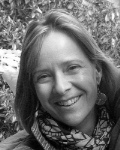 |
|
Professor Suellen Shay
Associate Professor and Deputy Dean in the Centre for Higher Education Development (CHED) at the University of Cape Town, South Africa

|
| |
|
|
Contesting purposes for higher education: Epistemic code gaps, shifts and clashes
I will address the theme of ‘What is Higher Education for?’ from the rich and contested site of curriculum. Much of the contestation around curriculum occurs against the backdrop of global concerns about a general failure of higher education evidenced in poor articulation between the secondary and tertiary sectors, poor completion rates, under-employed graduates and rising youth unemployment. These curriculum debates are often framed through a discourse of polarities, or ‘false choices’ about the purposes of higher education. These include, for example, choices between curricula for employability vs. ‘educating the mind’, vocational vs. academic, knowing vs. being, problem-based vs. discipline-based, depth vs. breadth, mode 1 vs. mode 2. Underlying these debates and the false choices they construct are contestations about knowledge. I will argue that one of the key purposes of Higher Education and hence of curricula for the 21st Century is enabling epistemic access – that social access without epistemic access will ultimately leave our students voiceless with respect to societies’ most important conversations.
More work is needed to conceptualize what ‘epistemic access’ means. I argue that conceptualizing curricula for epistemic access has number of requirements. First, drawing on social realism, it asserts both the objectivity and sociality of knowledge. Second, drawing on the work of Basil Bernstein and Karl Maton, it puts forward a case for forms of knowledge distinguished by different underlying principles or different bases of legitimation. Third, it conceptualizes what happens when these differentiated forms of knowledge get recontextualized into curricula generating educational knowledge with different epistemic codes or values. Fourth, it proposes that these different epistemic codes legitimize different knowers or different identities. Such a conceptual framework enables the analysis of epistemic codes – the gaps, shifts and clashes.
Finally, I apply this conceptual framework to the analysis of broad code shifts both in the field of knowledge production as well as the field of knowledge recontextualization, that is, higher education curricula. I propose that what we are seeing is a contextual pull in the field of knowledge production manifest for example in the weakening of boundaries around disciplines in order to serve some external purpose, for example, the solving of some problem – what Bernstein refers to as ‘regions’. At the same time we are witnessing code shifts in curricula due to a number of recontextualization forces – for example, the market, technology, and instrumentalism. What we may be witnessing is a widening gap between what is needed in the field of knowledge production and what higher education curricula have to offer.
Biography
Suellen Shay is Associate Professor in the Centre for Higher Education Development (CHED) at the University of Cape Town. She is also currently Deputy Dean of CHED. Her career in CHED since 1989 has spanned a range of types of development work, including language development, curriculum development, and staff and institutional development. Her research attempts to bring the theoretical frameworks of sociology of education to an understanding of higher education as social practice, specifically focusing on assessment and more recently knowledge and curriculum.
|
 Top Top
| |
 |
 |
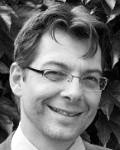 |
|
Professor Georg Krücken
Director of the International Centre for Higher Education Research Kassel, Germany, and Professor of Sociology and Higher Education Research at the University of Kassel

|
| |
|
|
|
Empowering Universities: Contemporary Transformations and Unintended Consequences
In a range of very different national higher education systems, we can observe broader transformations of the “idea of the university” that are taking place at three different levels, i.e., the macro-level of society, the level of university governance and the level of the university itself. At the macro-level, there is an increase in the number of students enrolled, subjects of study offered, and university missions. At the second level changes are evident at the level of university governance. New Public Management reforms have put into question the traditional mode of governance that was based on the interplay of strong state regulation and academic self-governance. Under the current regime, new actors like accreditation and evaluation bodies or boards of trustees are emerging. At a third level, the level of the university organisation itself, we clearly see important changes indicating a shift towards a stronger role for management in higher education. The university as an organization is transforming into an organizational actor, i.e., an integrated, goal-oriented, and competitive entity in which management and leadership play an ever more important role. By focussing on the traditional missions “research” and “teaching” as well as on the so-called third mission, i.e., direct contributions to the economy and society at large, I will show that the university’s pursuit of these missions is increasingly seen as something that can be managed and achieved in a direct way. Through this, core characteristics of a professional organisation whose basic and inherently uncertain processes are ultimately controlled by academics and not by administrators or managers are challenged. In my presentation I will focus on the consequences of the increasing role for management in higher education. Following my analysis, due to the complexity of universities and their environments direct consequences are less far-reaching as compared to the indirect consequences of purposeful managerial action. Such consequences deserve careful attention as they can be both supporting and damaging “the idea of the university” and it’s missions.
Biography
Professor Georg Krücken is Executive Director of the International Centre for Higher Education Research Kassel (INCHER-Kassel) and Professor of Higher Education Research at the University of Kassel (Faculty of Social Sciences).
Professor Krücken is a sociologist and university researchers, he has conducted numerous research projects in the field of higher education, science and research organization and widely published on these topics.
He is co-editor of several journals, a member of advisory boards and committees of experts and spokesman for the interdisciplinary and international research network "new institutionalism." Prior to his appointment at the University of Kassel in 2011, he held the Chair for scientific organization, higher education and science management at the German University of Administrative Sciences (DHV) Speyer.
|
 Top Top
| |
 |
 |
 |
|
Professor Sir David Watson
Professor Sir David Watson, President, SRHE, Principal of Green Templeton College and Professor of Higher Education at the University of Oxford

|
| |
|
|
Presidential Address
Wednesday 12th December 17.30-18.00
Caernarfon Suite
Retiring SRHE Honorary President David Watson will draw on historical and philosophical analysis in an attempt to answer some perennial questions about the purposes of higher education. Does initial (or undergraduate) higher education invariably change the lives of those who participate in it? If so, how – for example in economic or moral terms, or in any other way? And if so why – who or what is responsible for bringing this about? Are these effects serendipitous or predictable, designed or accidental, desired or feared? Is higher education a necessary or even a sufficient condition for any such “transformations” (as they are fashionably called today)? Are they more general aspects of maturation for some people?
Biography
David Watson has been Principal of Green Templeton College and Professor of Higher Education at the University of Oxford since October 2010. He was Professor of Higher Education Management at the Institute of Education, University of London, from 2005-2010, and Vice-Chancellor of the University of Brighton between 1990 and 2005. His most recent books are Managing Civic and Community Engagement (2007), The Dearing Report: ten years on (2007), The Question of Morale: managing happiness and unhappiness in university life (2009), and The Engaged University (2011).
He has contributed widely to developments in UK higher education, including as a member of the Council for National Academic Awards (1977-1993), the Polytechnics and Colleges Funding Council (1988-92), and the Higher Education Funding Council for England (1992-96). He was a member of the Paul Hamlyn Foundation's National Commission on Education (1992-1993), and the National Committee of Inquiry into Higher Education chaired by Sir Ron Dearing (1996-1997). He was the elected chair of the Universities Association for Continuing Education between 1994 and 1998, and chaired the Longer Term Strategy Group of Universities UK between 1999 and 2005. He is President of the Society for Research into Higher Education, a Trustee of the Nuffield Foundation, a Companion of the Institute of Management, and a National Teaching Fellow (2008). He chaired the national Inquiry into the Future for Lifelong Learning, and co-authored its report Learning Through Life (2009). He was knighted in 1998 for services to higher education. In 2009 he received the Times Higher Education Lifetime Achievement Award |
 Top Top
 Top Top
|
|
|
|

